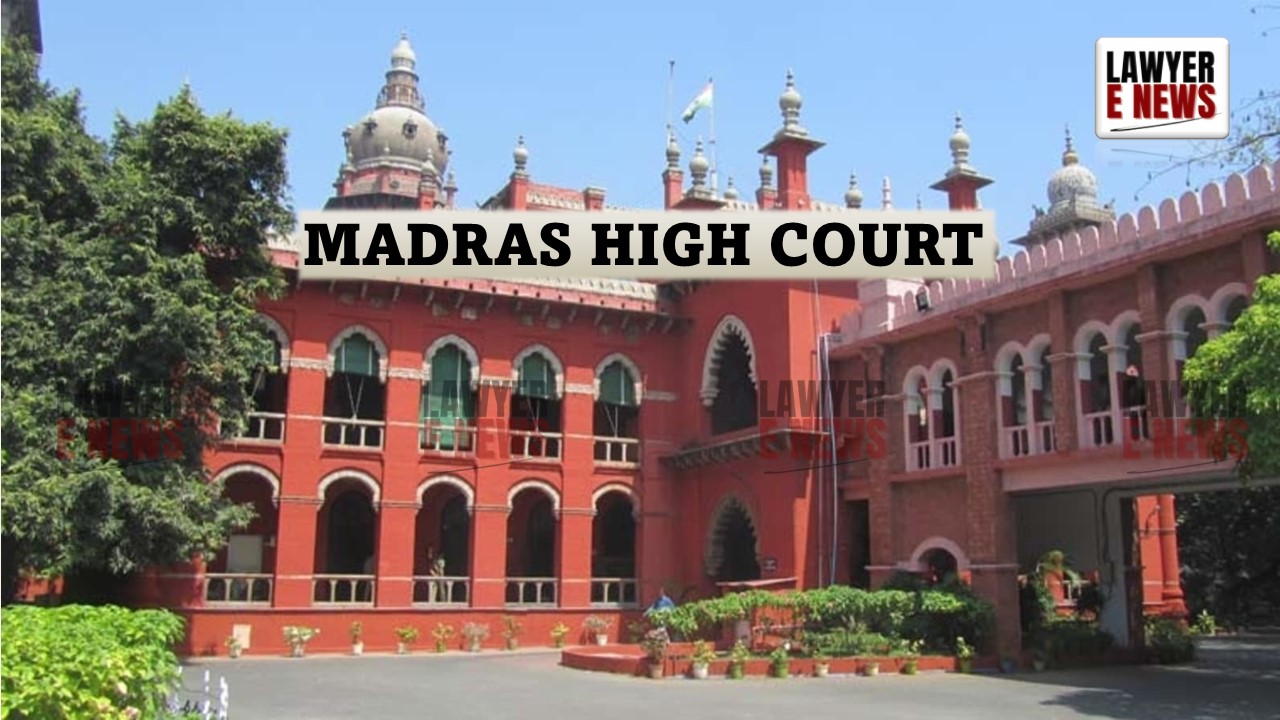-
by Admin
15 February 2026 5:35 AM



On September 23, 2024, the Madras High Court, in M/s. Saravana Global Energy Limited v. Tamil Nadu Transmission Corporation Limited (TANTRANSCO), C.S. No. 810 of 2012, dismissed a civil suit for the recovery of ₹1,38,35,732 plus interest. The plaintiff, Saravana Global Energy, sought recovery for unpaid invoices and contested the defendant’s imposition of liquidated damages for delayed delivery. The Court held that the force majeure defense raised by the plaintiff was invalid as they failed to provide timely notice under the contract. Additionally, the Court ruled the suit was barred by limitation, as it was filed beyond the three-year statutory period under the Limitation Act, 1963.
The plaintiff, M/s. Saravana Global Energy Limited, supplied electrical insulators to TANTRANSCO under three purchase orders between 2007 and 2008. Due to delays in delivery, TANTRANSCO withheld payments and imposed liquidated damages, amounting to ₹73,45,827, under the purchase order terms. Saravana Global Energy claimed the delay resulted from force majeure events such as floods and labor strikes, arguing that the damages imposed were excessive and violated Sections 73 and 74 of the Indian Contract Act, 1872. Additionally, the plaintiff sought interest on delayed payments, despite no contractual provision for interest.
The plaintiff cited floods and labor issues as force majeure events to justify the delayed delivery. However, the Court observed that under the purchase order, notice of such events had to be given within 15 days of occurrence. The plaintiff failed to provide timely notice. The Court emphasized that the pattern of deliveries remained consistent during the alleged force majeure period, weakening the plaintiff's defense.
“The defense of force majeure cannot be invoked retrospectively without adhering to contractual obligations, including the stipulation for timely notice.”
The plaintiff argued that a 30-day payment practice was followed by the defendant and sought interest on delayed payments. The defendant countered that no specific time for payment or interest on delayed payments was included in the contract. The Court agreed with the defendant, ruling that the claim for interest was unsustainable as the contract did not stipulate any provision for interest. The Court referenced Section 14 of the Limitation Act, which excludes the possibility of implied terms regarding payment timelines.
The defendant argued that the cause of action arose in 2009 when the liquidated damages were imposed, but the suit was only filed in 2012, beyond the three-year limitation period. The Court held that the suit was indeed barred by limitation, as the plaintiff failed to file within the prescribed time.
"Where the cause of action arises, limitation runs. Delay in seeking recovery of dues cannot be excused, especially where the suit is time-barred by statute."
The Court, presided by Justice A.A. Nakkiran, dismissed the plaintiff's suit, holding that:
Force Majeure Defense Rejected: The plaintiff's failure to notify the defendant within the stipulated time frame rendered the force majeure claim ineffective.
No Entitlement to Interest: The absence of any contractual provision for interest on delayed payments meant that the plaintiff could not claim it.
Suit Time-Barred: The suit, filed beyond the three-year limitation period, was barred under Section 14 of the Limitation Act.
The Court upheld TANTRANSCO's imposition of liquidated damages for the delayed supply of goods and dismissed the plaintiff’s claim for recovery of the withheld amount as well as interest.
The Madras High Court's ruling reinforces the importance of adhering to contractual provisions, particularly concerning force majeure claims and timely notices. The judgment underscores that claims for interest and payment recovery must be based on clear contractual terms and filed within the prescribed limitation period.
Date of decision: September 23, 2024
M/s. Saravana Global Energy Limited v. Tamil Nadu Transmission Corporation Limited (TANTRANSCO)
